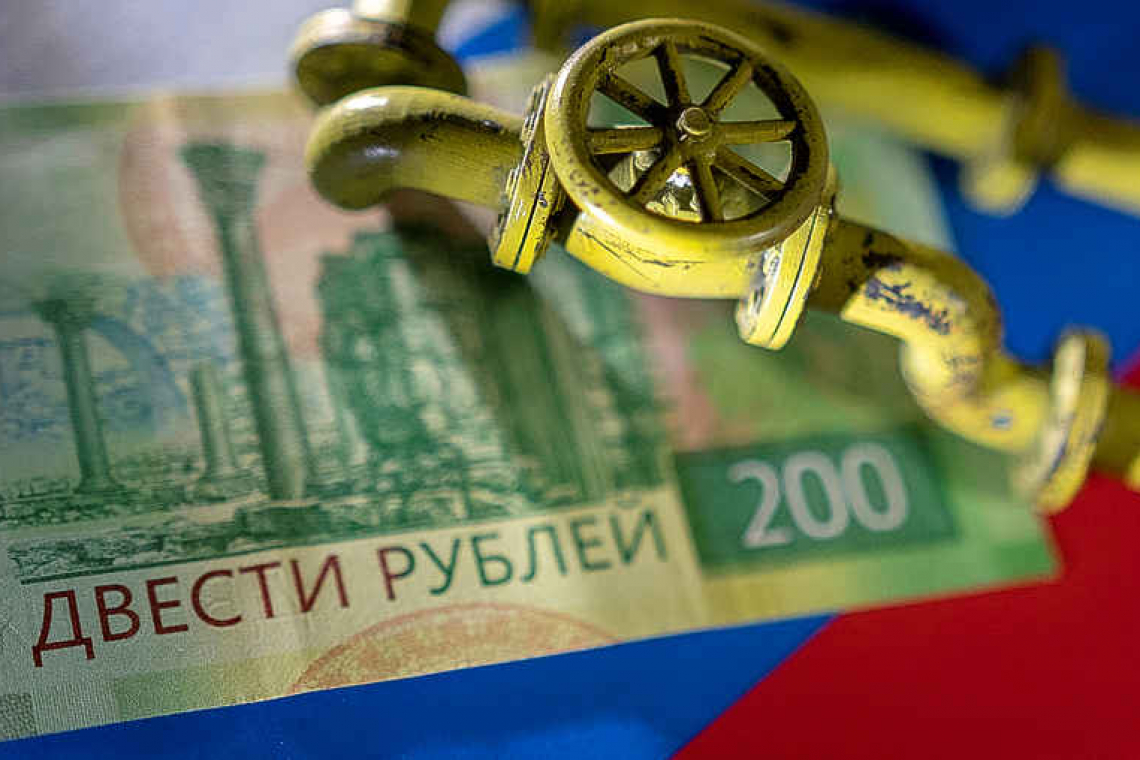LONDON--Russia will seek payment in roubles for gas sold to "unfriendly" countries, President Vladimir Putin said on Wednesday, and European gas prices soared on concerns the move would exacerbate the region's energy crunch.
European nations and the United States have imposed heavy sanctions on Russia since Moscow sent troops into Ukraine on Feb. 24. But Europe depends heavily on Russian gas for heating and power generation, and the European Union is split on whether to sanction Russia's energy sector.
Putin's message was clear: If you want our gas, buy our currency. It remained unclear whether Russia has the power to unilaterally change existing contracts agreed upon in euros.
The rouble briefly leapt after the shock announcement to a three-week high past 95 against the dollar. It pared gains but stayed well below 100. The currency is down around 20% since Feb. 24.
Some European wholesale gas prices up to 30% higher on Wednesday. British and Dutch wholesale gas prices jumped.
Russian gas accounts for some 40% of Europe's total consumption. EU gas imports from Russia this year have fluctuated between 200 million to 800 million euros ($880 million) a day.
"Russia will continue, of course, to supply natural gas in accordance with volumes and prices ... fixed in previously concluded contracts," Putin said at a televised meeting with government ministers. "The changes will only affect the currency of payment, which will be changed to Russian roubles."
German Economy Minister Robert Habeck called Putin's demand a breach of contract and other buyers of Russian gas echoed the point. "This would constitute a breach to payment rules included in the current contracts," said a senior Polish government source, adding Poland has no intention of signing new contracts with Gazprom after their existing deal expires at the end of this year.
"There is no danger for the (gas) supply, we have checked, there is a financial counterparty in Bulgaria that can realize the transaction also in roubles," Energy Minister Alexander Nikolov told reporters in Sofia. "We expect all kinds of actions on the verge of the unusual but this scenario has been discussed, so there is no risk for the payments under the existing contract."
Major banks are reluctant to trade in Russian assets, further complicating Putin's demand.
A spokesperson for Dutch gas supplier Eneco, which buys 15% of its gas from Russian gas giant Gazprom's German subsidiary Wingas GmbH, said it had a long-term contract denominated in euros. "I can't imagine we will agree to change the terms of that."
According to Gazprom, 58% of its sales of natural gas to Europe and other countries as of Jan. 27 were settled in euros. U.S. dollars accounted for about 39% of gross sales and sterling around 3%. Commodities traded worldwide are largely transacted in the U.S. dollar or the euro, which make up roughly 80% of worldwide currency reserves and carry less political risk than other currencies.
Several firms, including oil and gas majors Eni, Shell and BP, RWE and Uniper - Germany's biggest importer of Russian gas - declined to comment. "At face value this appears to be an attempt to prop up the rouble by compelling gas buyers to buy the previously free-falling currency in order to pay," said Vinicius Romano, senior analyst at consultancy Rystad Energy.







